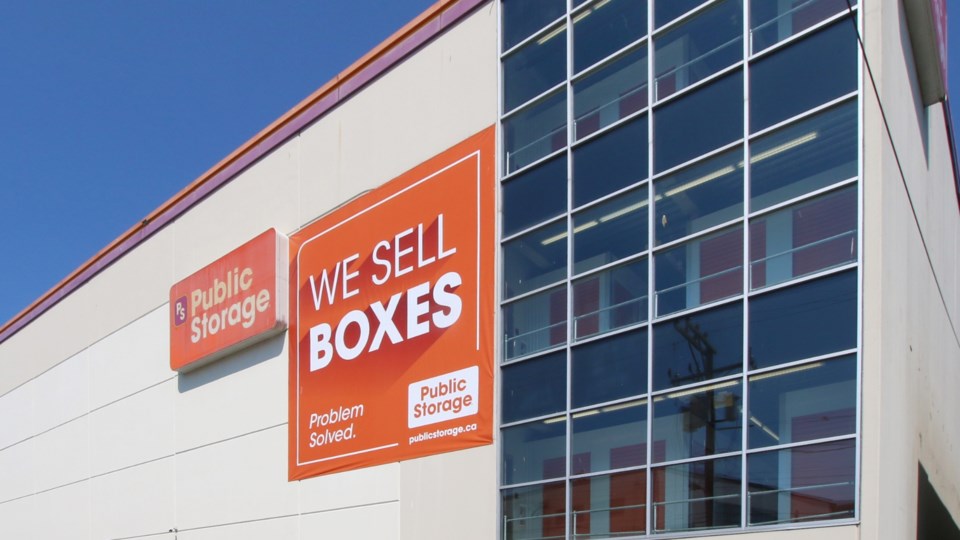The development of self-storage facilities is booming across Western Canada.
Rising costs and the densification of housing in British Columbia’s Lower Mainland are creating a surge in demand for self-storage among residents and businesses.
The limited supply of convenient space is also attracting developers and companies like Pockit, SmartStop and U-Haul wanting to expand their self-storage footprints.
However, in order to maintain job space, Vancouver has limited construction of new self-storage buildings on industrial land, mandating the use of ground floors as employment space.
Although the concept is promising, this also means self-storage will be farther away from key residential areas.
Colliers associate vice-president Phil Gibbons said the growing trend towards denser living has driven demand for storage space.
“For example the Tri-Cities, it’s a very developing area with towers going up everywhere,” he said. “Housing is pretty small in these new towers, so they’re going to need somewhere to store all their Christmas trees, bikes or sporting goods.
“A lot of these units don’t even come with parking stalls anymore, let alone storage lockers.”
The number of industrial developers keen to build self-storage space has grown.
Based on current interest rates, offers from institutional groups such as those out of California and Toronto are not as aggressive as they once were, but properties are still being sold, said Gibbons.
One of the most recent sales he was involved in was of a redevelopment site at the corner of Lougheed Highway and Boundary Road on the Vancouver-Burnaby border.
The proposed facility will feature a total of 1,250 lockers over 86,700 square feet in a four-to-six-storey building, including an internal car wash on the first floor.
South Vancouver is also gaining more popularity as a place to develop these facilities, and already hosts most of the city’s storage units.
However, being restricted to this industrial area raises the issue of their distance to residential areas, especially those with high-density housing like downtown.
Additionally, concerns over the minimal jobs generated by self-storage facilities have led to regulations requiring first-floor employment-generating spaces in new developments.
Yet, according to Gibbons, storage units provide an important space for small businesses to conduct their activities.
“Every location is different, but you’re seeing independent contractors like electricians or plumbers renting two 10-by-20s, and that’s the warehouse,” he said. “They’re setting up shelves, their tools, supplies, and you can get power in there. People also have desks.”
This option is more feasible than renting the smallest warehouse, which is typically around 2,500 square feet, he added.
“The rents for them [warehouses] skyrocketed over the past seven years,” he said. “They went from like $9 to $29; these guys can’t afford these small warehouses. We know [municipalities] don’t like storage because it’s not employment producing, but it actually kind of is, because all these contractors are using it for their business.”
The self-storage boom is evident across Western Canada. U-Haul acquired the Calgary Herald building in early 2023 with plans to redevelop it with storage units.
The boom is leading fast-growing cities and towns across the West like Calgary, Kelowna and Squamish to deal with the increased demand differently.
In Squamish, self-storage has been completely banned for the lack of employment production, as 100,000-square-foot self-storage buildings can run with only three employees, according to Gibbons.
It may ultimately prompt Calgary and Kelowna to introduce policies similar to those Vancouver has implemented in order to preserve employment space.
“Anywhere with a downtown area where you want to get storage, you’re really going to have to start thinking the way that Vancouver is thinking,” Gibbons said.






